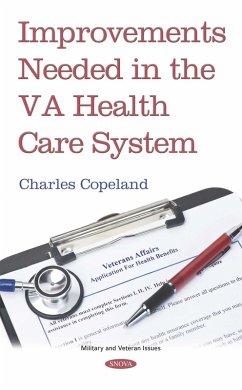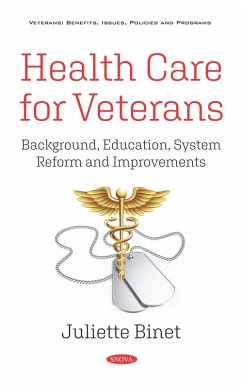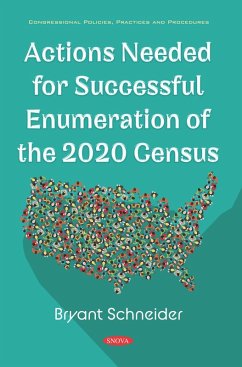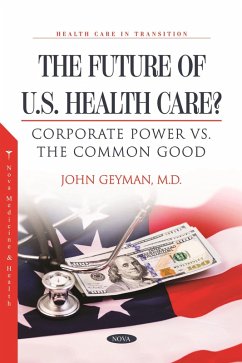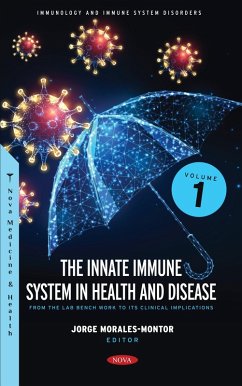Nearly 40,000 providers hold privileges in VHA's 170 VA Medical Centers (VAMCs). VAMCs must identify and review any concerns that arise about the clinical care their providers deliver. Chapter 1 examines, among other things, selected VAMCs' reviews of providers' clinical care after concerns are raised and VHA's oversight of these reviews, and VAMCs' reporting of providers to the NPDB and SLBs and VHA's oversight of reporting. Chapter 2 summarizes the implementation and oversight of VHA processes for reviewing and reporting providers after quality and safety concerns have been raised at selected VA medical centers. Veterans suffer a disproportionately higher rate of suicide than the civilian population. Chapter 3 focuses on the extent to which VHA conducts activities for its suicide prevention media outreach campaign, and evaluates the effectiveness of its campaign. The Faster Care for Veterans Act of 2016 called for the Department of Veterans Affairs (VA) to conduct a pilot program under which veterans can use an Internet website or mobile application to schedule and confirm appointments at the department's medical facilities. Chapter 4 examines the extent to which VHA (conducts activities for its suicide prevention media outreach campaign, and evaluates the effectiveness of its campaign. VAMCs use reusable medical equipment (RME) which must be reprocessed-that is, cleaned, disinfected, or sterilized-between uses. Improper reprocessing of RME can negatively affect patient care. To help ensure the safety of veterans, VHA policy establishes requirements VAMCs must follow when reprocessing RME and requires a number of related oversight efforts. Chapters 5 and 6 discuss VHA's oversight of VAMCs' adherence to RME policies and challenges VAMCs face in operating their Sterile Processing Services programs, and any efforts by VHA to address these challenges. VHA has designated patient advocates at each VAMC to receive and document feedback from veterans or their representatives, including requests for information, compliments, and complaints. Chapter 7 examines the extent to which VHA has provided guidance on the governance of the program; provided guidance on staffing the program; assessed the training needs of patient advocates and monitored training completion; and monitored patient advocacy program data-entry practices and reviewed program data. Community-based outpatient clinics (CBOC) are an important part of the Department of Veterans Affairs' (VA) Veterans Health Administration (VHA) health care delivery system. These clinics are geographically separate from VA medical centers (VAMC) and provide outpatient services, including primary care and mental health care. Chapter 8 reviews VHA's use of contracts to carry out core functions. Selected Department of Veterans Affairs' (VA) medical centers (VAMC) use generally similar approaches for managing their pharmacy inventories. Chapter 9 describes approaches selected VAMCs use to manage their pharmacy inventories and assesses the extent to which VA oversees VAMCs' efforts to manage their pharmacy inventories. The Veterans Health Administration (VHA) has made progress improving opioid safety through its Opioid Safety Initiative (OSI). Chapter 10 examines the extent to which VHA has met OSI goals established in 2014 and (2) the extent to which VHA providers adhere to key opioid risk mitigation strategies.
Dieser Download kann aus rechtlichen Gründen nur mit Rechnungsadresse in A, B, BG, CY, CZ, D, DK, EW, E, FIN, F, GR, HR, H, IRL, I, LT, L, LR, M, NL, PL, P, R, S, SLO, SK ausgeliefert werden.

